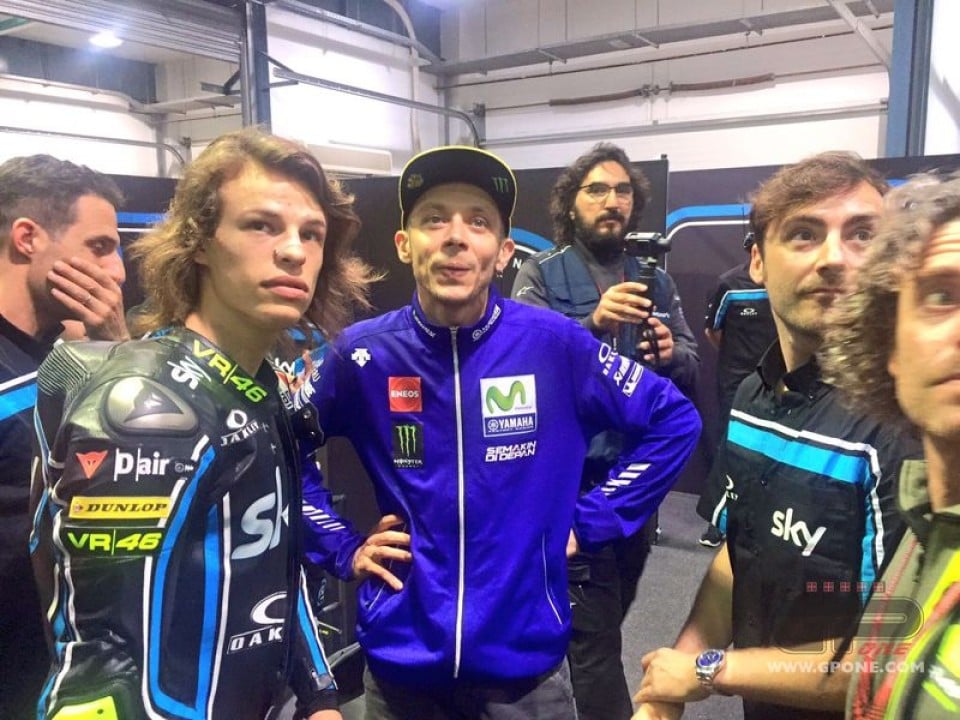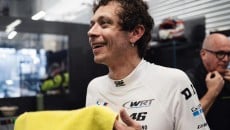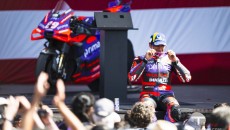Motorcycle racing in Qatar has missed the umpteenth chance to cut a good figure and show that they are truly organized. And the managers foundered in a few drops of water.
In fact, we have all been at the track for hours waiting to see if and how the last day of practice for the Qatar Grand Prix will be held, but all is silent and the time notices with new procedures come one after another with no changes.
The ‘unforeseen’ situation is the rain that has fallen at Losail.
A bolt of lightning in an otherwise calm sky?
Anything but.
In fact, talk began about the possibility of rain for the MotoGP opening Grand Prix in Qatar on 13 February.
We all said it: they are exaggerating. It is still 15 days away. Get real!
However, evidently weather forecasting has taken giant steps forward and Dorna and FIM had some rather accurate information. After all, why else would Loris Capirossi and Franco Uncini, after a survey in Qatar, have stated: “We spoke with a lot of riders, including Valentino Rossi, and they will be happy to race even on a wet track in Qatar.”
Capirossi went on to say: “Every decision will be reviewed by the safety commission which includes the riders, but the idea is that in the event of rain, Moto2 and Moto3 will not race, whereas the MotoGP bikes would have (on Sunday) 30’ extra of practice in order to give the riders a chance to assess the track conditions and also to decide not to race, should they deem it prohibitive to do so."
So, besides the absurd notion of not having Moto2 and Moto3 race, which does not even merit comment, everything is fine? Everything is decided and scheduled?
Nothing of the sort. The forecasted rain arrived and once again, the Grand Prix Motorcycle Racing championship was caught out unprepared.
The race is on, it’s off. Practice will be done with rain tyres. No, there is no need because the track is half dry. Total confusion where a procedure should have been put into place.
Something like: if it rains on Saturday morning (which is what happened), everyone will be on the track for practice. A simple line of command would have been enough.
A manager appointed with the task of moving the troops in a single direction.
If A happens, we will do B.
Let’s take that hill, soldiers.
Too difficult?
We don’t think so. It would have been enough to think. And act.
From 1977 to the present I have seen it all, including Kenny Roberts fighting with the organizers at Imola and on other circuits to have more hay bales put on the escape runs.
You know, the organizers had to pay the costs, so they were always a bit tight. But Kenny was a rather tough negotiator and he always got his way.
But do you want to know something else: he always had Franco Uncini by his side.
Maybe the problem now is that the negotiators are in the organization with which they must negotiate.
Who is guarding the guards?










